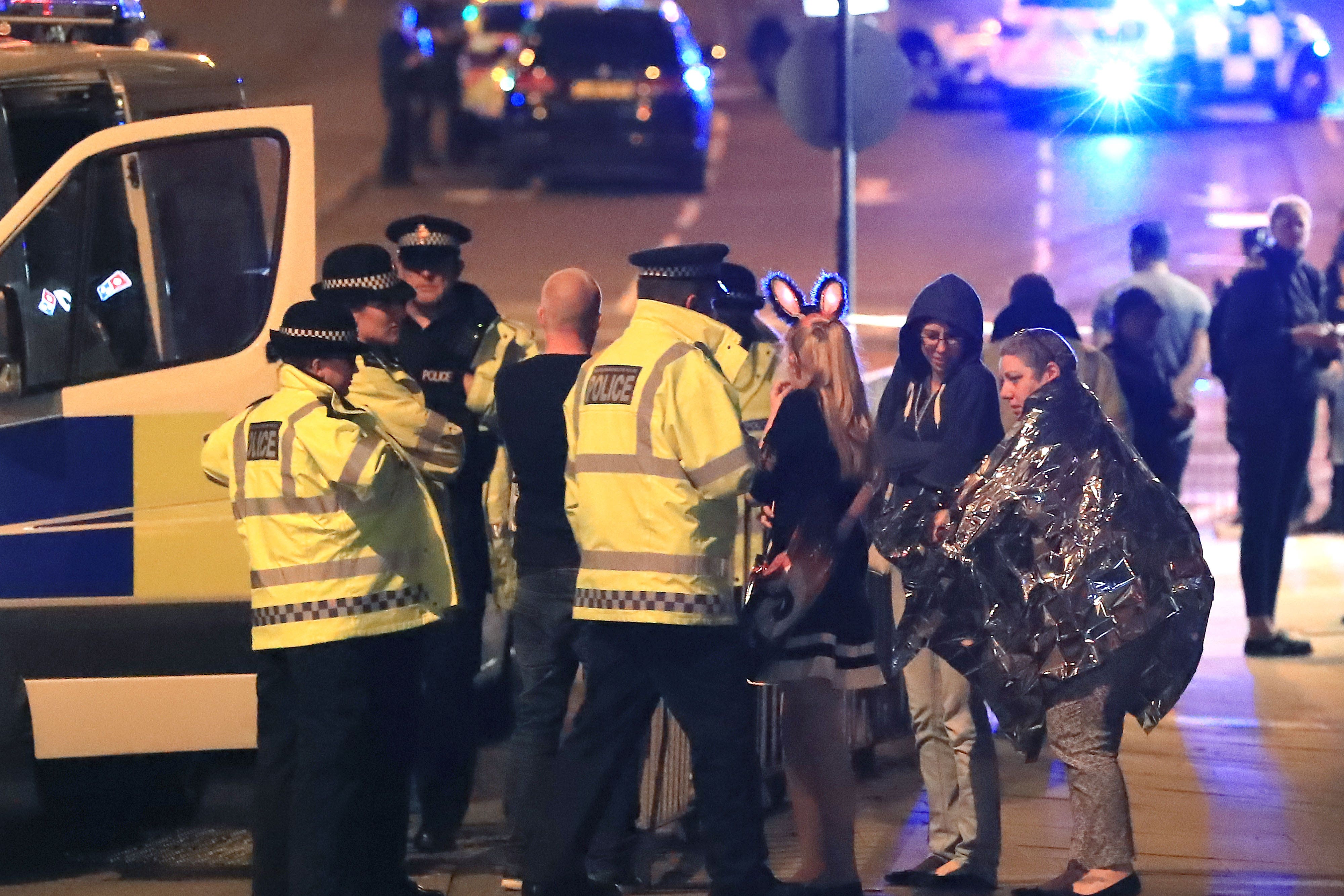Manchester Arena attack police chief could face criminal charges over inquiry evidence
Former chief Inspector Dale Sexton previously claimed he was too busy to ring other emergency services during the attack

Your support helps us to tell the story
From reproductive rights to climate change to Big Tech, The Independent is on the ground when the story is developing. Whether it's investigating the financials of Elon Musk's pro-Trump PAC or producing our latest documentary, 'The A Word', which shines a light on the American women fighting for reproductive rights, we know how important it is to parse out the facts from the messaging.
At such a critical moment in US history, we need reporters on the ground. Your donation allows us to keep sending journalists to speak to both sides of the story.
The Independent is trusted by Americans across the entire political spectrum. And unlike many other quality news outlets, we choose not to lock Americans out of our reporting and analysis with paywalls. We believe quality journalism should be available to everyone, paid for by those who can afford it.
Your support makes all the difference.The senior police officer who was in charge on the night of the Manchester Arena bombing could face criminal charges over evidence he gave about the emergency response to the terror attack.
The Independent Office for Police Conduct (IOPC) has confirmed it will be referring a file of evidence to the Crown Prosecution Service (CPS) regarding former Chief Inspector Dale Sexton’s comments during reviews into the attack carried out at an Ariana Grande concert by suicide bomber Salman Abedi.
The news, announced on Wednesday, comes after Mr Sexton was previously cleared of breaching standards of professional behaviour or committing a criminal offence following an investigation which concluded in February.
But following a complaint on behalf of families of the victims of the attack, as well as a separate conduct referral from Greater Manchester Police (GMP), a file has now been passed to the CPS.
Mr Sexton was force duty officer and in charge of emergency services on the night of the attack on 22 May, 2017 – which killed 22 people, and he first claimed that he was too busy to ring emergency services, during an internal inquiry by the police force.
He then later said he made the decision to not tell other emergency service responders of Operation Plato – a predetermined response to a marauding armed terrorist on the night.
The GMP plan required him to share the declaration with other emergency services, but he failed to do so. He did not reveal this information in any previous reviews or interviews.
The police watchdog has now upheld a Victims’ Right to Review (VRR) which was requested by the families of the victims.
A second decision maker, who has no connection to the original investigation, has reviewed the evidence gathered during the investigation and decided an offence may have been committed.

IOPC director of operations Amanda Rowe said: “The Manchester Arena bombing was a tragedy that had a profound impact right across Greater Manchester and beyond. It will live long in the memories for all the wrong reasons and our thoughts remain with all those affected by this horrific act of violence.
“This was a complex investigation, carried out independently of police, and investigators obtained a significant amount of information, which was considered as part of our decision-making.
“In cases like this, and in line with other organisations, victims and complainants have a right to have their case reviewed by someone unconnected to the original investigation. In this instance, we determined the matter requires further exploration and will be submitted to the CPS to consider in due course.
“A referral to the CPS does not necessarily mean that criminal charges will be authorised. It will now be for prosecutors to determine whether charges should follow and, if so, what those charges may be.”

